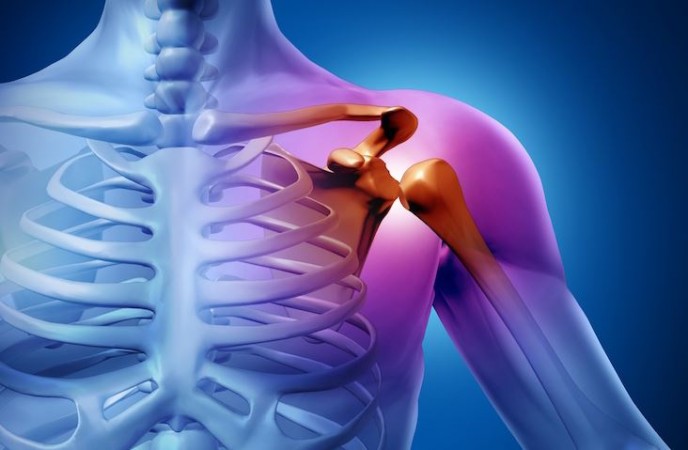
Frozen shoulder, clinically known as adhesive capsulitis, is a condition characterized by pain and stiffness in the shoulder joint, leading to restricted movement. It typically progresses through three stages: freezing, frozen, and thawing. During the freezing stage, patients experience gradual onset of pain and stiffness in the shoulder. The frozen stage is marked by persistent pain and severely limited range of motion. Finally, in the thawing stage, symptoms gradually improve, and mobility returns. Understanding the symptoms and effective management strategies for frozen shoulder is crucial for individuals affected by this condition.
Symptoms of Frozen Shoulder:
Frozen shoulder presents with several hallmark symptoms, primarily pain and stiffness. Patients often describe a gradual onset of pain in one shoulder, which worsens over time. The pain may be dull or sharp and can radiate down the arm. Stiffness in the shoulder joint progressively increases, making everyday tasks such as reaching overhead or behind the back challenging. In severe cases, even simple movements like combing hair or getting dressed become difficult. Along with pain and stiffness, individuals with frozen shoulder may experience muscle weakness and difficulty sleeping due to discomfort.
Managing Frozen Shoulder:
Hot/Cold Packs:
Hot and cold therapy are common treatments used to alleviate pain and reduce inflammation associated with frozen shoulder. Heat therapy helps relax muscles and increase blood flow to the affected area, promoting healing. Applying a warm compress or heating pad to the shoulder for 20 minutes at a time can provide relief. On the other hand, cold therapy constricts blood vessels, reducing swelling and numbing the area to alleviate pain. Ice packs or cold packs wrapped in a cloth should be applied to the shoulder every 2 to 4 hours for up to 20 minutes per session. Alternating between hot and cold therapy may also be beneficial in managing symptoms.
Therapy:
Physical therapy plays a crucial role in the management of frozen shoulder. A physical therapist can design a tailored exercise program to improve shoulder mobility, strength, and flexibility. Range of motion exercises such as pendulum exercises, shoulder stretches, and assisted shoulder rotations help loosen the stiff joint and improve flexibility. Strengthening exercises target the muscles surrounding the shoulder joint, enhancing stability and function. Additionally, manual therapy techniques such as joint mobilizations and soft tissue massage may be used to reduce pain and improve mobility. Regular attendance of physical therapy sessions is essential for maximizing the benefits of treatment.
Helpful Exercises:
Incorporating specific exercises into daily routine can help alleviate pain and improve mobility in individuals with frozen shoulder. One beneficial exercise involves standing facing a wall and using a small ball or foam roller to perform circular motions against the affected shoulder. This exercise helps to mobilize the shoulder joint and relieve stiffness. Another effective exercise is the towel stretch, where a towel is held behind the back with one hand while the other hand pulls the towel upward, stretching the shoulder muscles. Performing these exercises regularly can contribute to the gradual improvement of symptoms over time.
Frozen shoulder is a debilitating condition characterized by pain and stiffness in the shoulder joint. However, with proper management strategies such as hot/cold therapy, physical therapy, and targeted exercises, individuals can effectively alleviate symptoms and improve shoulder function. It is essential for patients to seek timely medical evaluation and treatment to prevent further complications and facilitate recovery. By understanding the symptoms and implementing appropriate management techniques, individuals with frozen shoulder can regain mobility and enhance their quality of life.
Budget 2024 Puts Focus on Women's Empowerment: FM Highlights Loans and Healthcare Coverage
India's Pre-Election Budget: Key Figures to Watch
What's in This Case Only Eating Bananas Can Be Dangerous for Heart..?